brand
ADESOLA ADEDUNTAN, CEO, FIRSTBANK – HOW TO DO WELL BY DOING GOOD

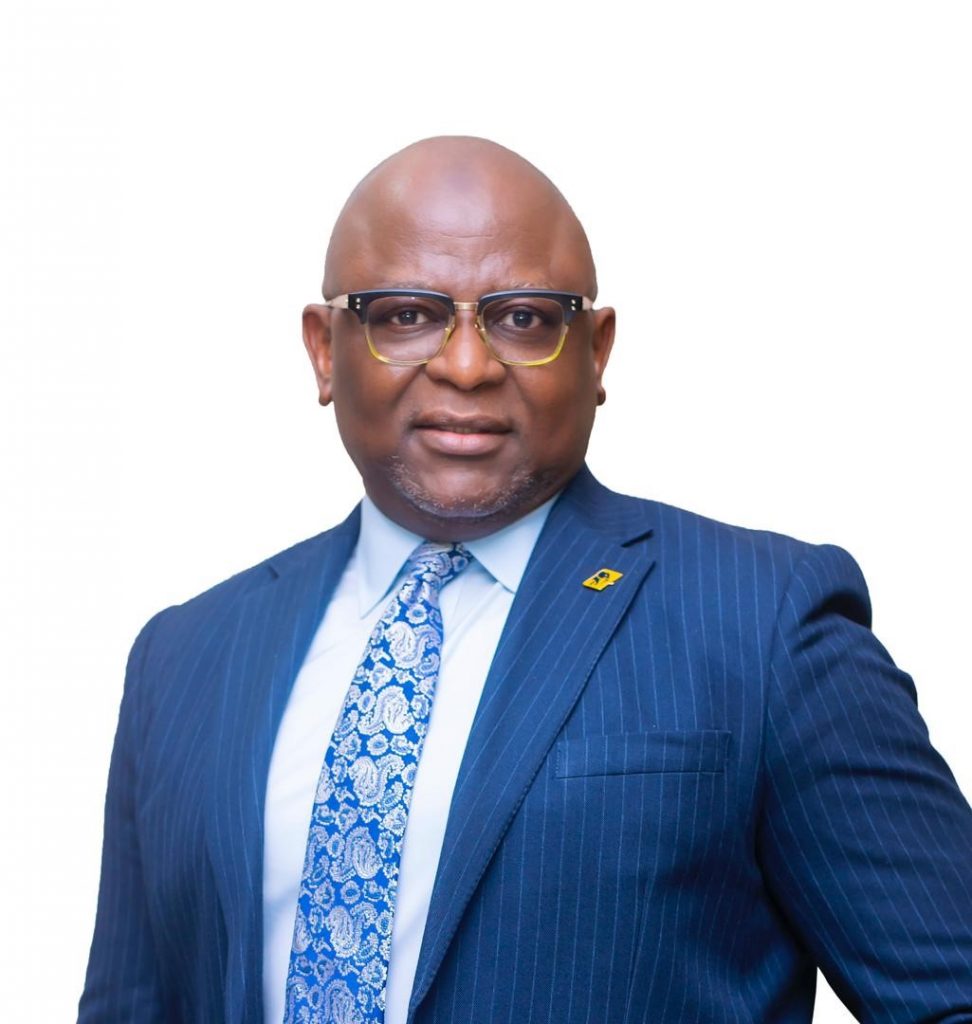
I travel to meet Dr Adesola Adeduntan in Edinburgh, where he has been invited to give a keynote address at the Edinburgh School of Business about the role of financial institutions in driving financial inclusion.Fittingly, as you land in Edinburgh, you are greeted by billboards from different investment funds advertising their credentials in responsible and sustainable investment and how environmental, social and governance (ESG) considerations underpin their activities.
With economists and politicians questioning capitalism and the Western liberal model, today the emphasis is very much on a stakeholder-based approach, whereby growth and prosperity is more equally attributed and takes into consideration the needs of the wider community. Sustainable investment has become de rigueur among corporate jargon.
Dr Adesola Kazeem Adeduntan, CEO of First Bank of Nigeria, is a veteran in the Nigerian banking and corporate world. His overriding message, clearly expressed throughout his interview responses, and also at the various talks he gave during the day (at the Business School and at a law firm), is on the importance of doing good if you’re to do well – financially – in Nigeria and indeed, Africa.
A telling sign
FirstBank is actually the oldest bank in Africa. It was established in Lagos in 1894 as the Bank of British West Africa. Last year it celebrated its 125th anniversary. It is also the biggest bank in Nigeria in terms of assets and branch network.
For Adeduntan, a veterinary doctor by training, it becomes clear, once we have settled down for our discussion, that the institution’s longevity is a telling sign: it not only proves the bank’s resilience, it also shows that it has the right structures in terms of governance and the right business model, with the country’s development at its core. The theme of the anniversary celebrations was about how the bank has been woven into the fabric of Nigerian society.
The clear message to the industry is that while it is possible to make a quick buck, you can only enjoy the sort of longevity it has if you conduct your business with the interests of the country at heart.
Nonetheless, it’s apparent Adeduntan does not want to dwell too long on past glories. Using the analogy of a car, he says that there is a reason why the windshield is large whilst the rear-view mirror is small.
The challenge of fintech
As in most sectors, traditional ways of doing business have been coming under increasing disruption from ever-evolving technology. The banking industry is no exception and seems to be under siege from an expanding fintech onslaught.
I ask him if he is worried that non-financial companies will be entering the banking sector, especially given the recent change in regulation by the Central Bank that allows non-traditional finance institutions, namely mobile operators, to enter the fray.
He says he is not worried as his bank has one of the best defined strategies when it comes to financial inclusion and that it has the largest digital banking network in Nigeria.
Much of this has been developed through the bank’s FirstMonie Agents system: 46,000 agents represent the bank across the country. Currently, 9m customers transact on their USSD platform (by mobile phone, both smart and analogue) in addition to 3m customers transacting on the FirstMobile platform.
The agent network, the biggest of its kind in the country, enables the bank to provide services to the most remote rural communities; and because it doesn’t need to have an extensive branch network, it means that these services can be supplied at a fraction of the cost of a ‘legacy’ banking model.
Financial deepening
Adeduntan prefers to use the phrase ‘financial deepening’ when talking about the unbanked. Financial inclusion has increased from the low 20s to approximately 40% in Nigeria over the past seven years and is expected to double to the mid-80s within the next five years.
He says ‘financial deepening’ occurs when financial inclusion starts playing an important role in economic development. It’s about layering additional products on the current agency banking network – services such as micro-credit, micro-insurance and micro-pension.
The aim is to provide value-added services whilst at the same time increasing the savings rate; this aspect, which is critical in driving investment rates, has been one factor behind Asia’s rapid growth.
It is in this area, he says, that the bank has a vital role to play and a distinct advantage over new entrants. Technology, he emphasises, will play a crucial part in broadening financial inclusion. In addition, it is important to partner and collaborate with different stakeholders such as NGOs and other organisations dealing with the bottom of the pyramid, to help them reach out to different groups and also improve financial literacy.
Last year saw a boom in venture capital investment into Nigeria. For example, $400m was invested in a number of fintech start-ups during November alone. Is he not worried that these fintech players, with their lower cost base and ability to use technology, AI and big data to overcome traditional hurdles, are going to take the majority share of the pie when it comes to servicing the unbanked?
He says that will only be the case if the banks do not manage to reinvent themselves. In Edinburgh, he actually spent a large part of his day visiting tech hubs around the university in the city and speaking to fintech companies. FirstBank, he adds, has a number of partnerships with fintechs as well as its own Digital Laboratory developing new solutions for the bank.
Nevertheless, he firmly believes that the ‘legacy banks’ will still continue to play a very central role, especially “in this part of the world where banks are quite dominant and they have significant buying power”.
In terms of settlements and deposits, he sees many of these new players as partners they can work with, even if in some areas they will be competitors.
Scope for growth
Despite the impressive strides made by the banking sector in Nigeria, Adeduntan believes there is still a massive scope for growth for the sector. He points out that none of the country’s top banks have made the Top 10 Banks in Africa list, despite Nigeria being the continent’s largest economy.
He thinks that with the signing of the African Continental Free Trade Agreement, “we are entering a very interesting period for the banking sector, not only in Nigeria but Africa in general”.
On the domestic front, does he expect further consolidation? “Within certain thresholds,” he answers. “Anything that would allow the strengthening of the entire banking sector, I am sure the Governor of the Central Bank would be positive about.”
He also points to demographics and the high rate of the unbanked as great opportunities for the growth of the sector continentally. “According to UNICEF, two billion babies will be born in Africa in the next 30 years,” he says. “And in places like DRC [where FirstBank has a presence] financial penetration is as low as 5%.” Put the two sets of figures together and, in theory at least, you get vast opportunity. But he adds the all-important caveat that demographics are only good if managed properly.
Supporting national champions
It hasn’t all been plain sailing for the bank, however. Adeduntan inherited a bank with several large exposures in the oil & gas and energy sectors, at a time when the oil & gas prices fell considerably, resulting in the devaluation of the naira against the dollar.
He says his management weathered the storm, reduced NPL levels to under double digits, and has strengthened the risk infrastructure, thus enabling the bank to better deal with cyclical downturns in future.
Discussing the role of large companies in the commercial landscape, Adeduntan says it is essential to have big banks like FirstBank, just as it is vital to have national champion companies that have the scale and wherewithal to make transformative investment. Such companies require financial institutions of similar scale to support them. The Dangote Group’s investment into what will become the continent’s largest oil refinery is a case in point, he adds.
Role of the Central Bank
We move on to the regulator and the role of the Central Bank. Does he think that it is too interventionist, dictating how much banks should lend, where they should place their assets?
Adeduntan refused to be drawn into criticism of the regulator, with whom he says he, and other bank CEOs, have a strong relationship. But he did say that the role of a central bank in the development of an emerging economy is clearly different from the role of a central bank in a developed economy.
“It is not unusual that the Central Bank intervenes in critical sectors allied to the loan to deposit ratio. It’s about economic growth; it’s about development; it’s about channelling credit in sectors that are very important for the national economy.
“Let us take agriculture – again, we are one of the biggest lenders into that sector. We found the Central Bank intervention in some of those critical sectors extremely useful and not just for us as a bank, but for the country as a whole. When you look at intervention in agriculture, you have to put it in the context of the size of the population. Nigeria is a country of 200m people today. The business of feeding 200m people is a strategic business. Everything that is being done to ensure that at least we are self-sufficient in food production is strategically important. We find the Central Bank intervention in those areas quite useful and of national importance.”
He reflected the positive attitude of many Nigerian entrepreneurs to the country’s future. He says he has a lot of time for the Economic Advisory Council – composed of credible business leaders and economists – that has been put together by President Muhammadu Buhari. And despite reports that the government is not economy-minded, he thinks that it is a pro-business government.
Ethical banking
It is nearly 10.00 in the evening when we finish our talk, his day having started at 07.30am. We go back to sustainability and the role of financial services to make sure they are lending to institutions that are ethical about their business and operating in a sustainable manner.
He says that the journey has started even if it is still early days. “But ultimately,” he says, “this is where we are headed. The Nigerian Sustainable Banking Principle speaks to this particular question. I think it’s evident from the points that I’ve made today, you can say that FirstBank is a bank that is happy to forego a few basis points in terms of its net margins, if that means it is contributing to development in a more ethical and sustainable way.
“We’ve always made a point that profitability is very important for us at FirstBank, but economic growth and national development is equally very important and speaks to the sustainability question.”
brand
ZENITH BANK’S GROSS EARNINGS SURGE 16% TO N3.4TN, AS PBT HITS N917.4BN IN Q3 2025


Zenith Bank Plc has released its unaudited financial results for the nine months ended 30 September 2025, with a remarkable 16% year-on-year growth in gross earnings from N2.9 trillion recorded in Q3 2024 to N3.4 trillion in Q3 2025. The Group’s performance continues to demonstrate resilience, strong momentum, disciplined execution and an ability to deliver long-term shareholder value in spite of challenging macroeconomic environment.According to the financial results presented to the Nigerian Exchange (NGX), the growth in gross earnings was driven by a sustained growth in interest income which grew by 41% year-on-year to N2.7 trillion. The growth in interest income was supported by a high-yield rate environment and an expansion in the Bank’s investment portfolio. Despite the increase in interest expense by 22% to N814 billion on the back of a tightening monetary cycle and a growth in the Bank’s funding base, the Bank was able to achieve a healthy Net Interest Margin (NIM) of 12% as against 10% in September 2024. Non-interest income declined by 38% to N535 billion, underpinned by a 60% decline in trading gains.Profitability remained strong, with profit before tax at N917 billion as against N1.00 trillion reported in September 2024. Profit after tax also declined by 8% to N764 billion and Earnings Per Share (EPS) came in at N18.60 as against N26.34 in September 2024, as the Bank took bold measures to improve the quality of its loan portfolio.The Bank’s total assets grew by 4% from N30 trillion in December 2024 to N31 trillion as at September 2025. This was largely supported by customer deposits, which rose by 8% to N23.7 trillion within the same period. Gross loans declined by 9% to N10 trillion as at September 2025, while Non-Performing Loan (NPL) ratio improved to 3% due to the write-off of non-performing loans.Return on Average Equity (ROAE) and Return on Average Assets (ROAA) stood at 23.3% and 3.3% respectively. Cost of funds increased to 4.5%, underscored by the broader elevated interest rate environment. The Group’s cost of risk stood at 10% while cost-to-income ratio rose to 45%.Coverage ratio and liquidity ratio remain solid and well within regulatory limits at 211.1% and 53% respectively. This highlights the Bank’s strong capital position and liquidity profile as well as its ability to fund strategic growth opportunities. It also reflects its unwavering commitment to a prudent risk management, compliance and corporate governance culture. Commenting on the results, the Group Managing Director/CEO, Dame Dr. Adaora Umeoji, OON, said: “the Bank’s robust performance is an attestation to the resilience of the Zenith brand, result-driven strategy, and the adaptability of our people in an evolving operating environment. We have fortified our capital base, reset our asset quality, and are well positioned for sustainable and profitable growth”.Looking to Q4 2025, Dame Dr. Umeoji reinforced her optimistic outlook: “This result confirms the resilience of both our business model and our people. We’re on a solid growth path that we expect to maintain through the remainder of the year. Our focus on innovation, digital transformation, and developing solutions that address our clients’ changing needs positions us to capitalise on emerging .
opportunities whilst maintaining our disciplined approach to growth.” She assured shareholders that the robust performance, combined with improved asset quality and the Bank’s strong capital base, positions Zenith Bank to deliver exceptional returns with expectations of sustained value creation. “We’re well placed to sustain this momentum whilst maintaining responsible leadership in the Nigerian banking industry and delivering exceptional value to all our stakeholders.”The Bank’s track record of excellent performance has continued to earn the brand numerous awards, including being recognised as the Number One Bank in Nigeria by Tier-1 Capital for the sixteenth consecutive year in the 2025 Top 1000 World Banks Ranking, published by The Banker and “Nigeria’s Best Bank” at the Euromoney Awards for Excellence 2025. The Bank was also awarded Bank of the Year (Nigeria) in The Banker’s Bank of the Year Awards for 2020, 2022 and 2024; Best Bank in Nigeria from 2020 to 2022, 2024 and 2025, in the Global Finance World’s Best Banks Awards; Best Bank for Digital Solutions in Nigeria in the Euromoney Awards 2023; and was listed in the World Finance Top 100 Global Companies in 2023.Further recognitions include Best Commercial Bank, Nigeria for five consecutive years from 2021 to 2025 in the World Finance Banking Awards and Most Sustainable Bank, Nigeria in the International Banker 2023 and 2024 Banking Awards. Additionally, Zenith Bank has been acknowledged as the Best Corporate Governance Bank, Nigeria, in the World Finance Corporate Governance Awards for four consecutive years from 2022 to 2025 and ‘Best in Corporate Governance’ Financial Services’ Africa for four consecutive years from 2020 to 2023 by the Ethical Boardroom.The Bank’s commitment to excellence led to Zenith being also being named the Most Valuable Banking Brand in Nigeria in The Banker’s Top 500 Banking Brands for 2020 and 2021, Bank of the Year 2023 to 2025 at the BusinessDay Banks and Other Financial Institutions (BAFI) Awards, and Retail Bank of the Year for three consecutive years from 2020 to 2022 and 2024 to 2025. The Bank also received the accolades of Best Commercial Bank, Nigeria and Best Innovation in Retail Banking, Nigeria, in the International Banker 2022 Banking Awards, Bank of the Year 2024 by ThisDay Newspaper; Bank of the Year 2024 by New Telegraph Newspaper; and Best in MSME Trade Finance, 2023 by Nairametrics. The Bank’s Hybrid Offer was also adjudged ‘Rights Issue/ Public Offer of the Year at the Nairametrics Capital Market Choice Awards 2025.Zenith Bank has also bagged several non-financial awards including, Most Responsible Organisation in Africa, Best Company in Transparency and Reporting and Best Company in Gender Equality and Women Empowerment at the SERAS CSR Awards Africa 2024.
brand
Guaranty Trust Holding Company Plc (“GTCO” or “the Group”) has released its Unaudited Consolidated and Separate Financial Statements as of September 30, 2025, to the Nigerian Exchange Group (NGX) and London Stock Exchange (LSE)
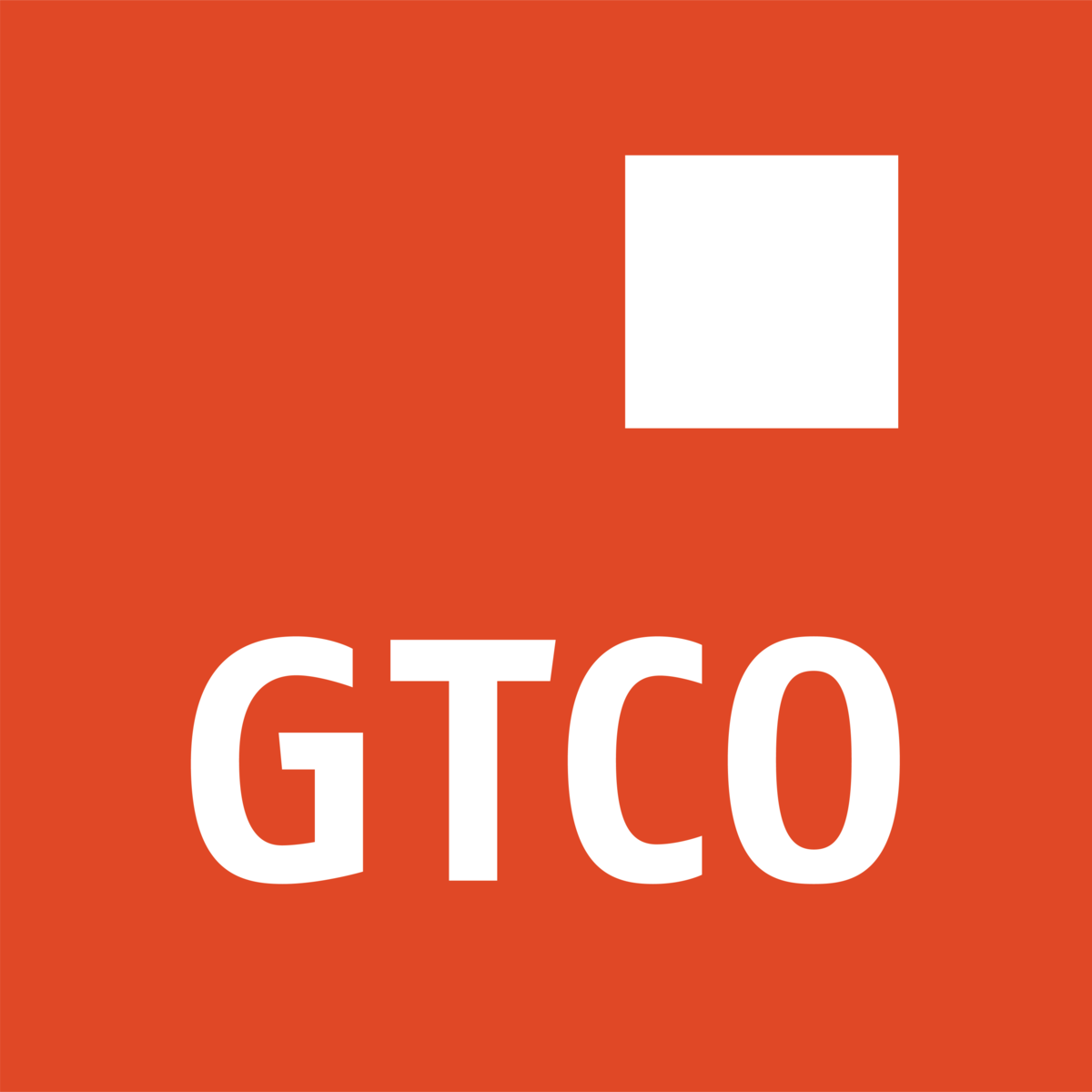
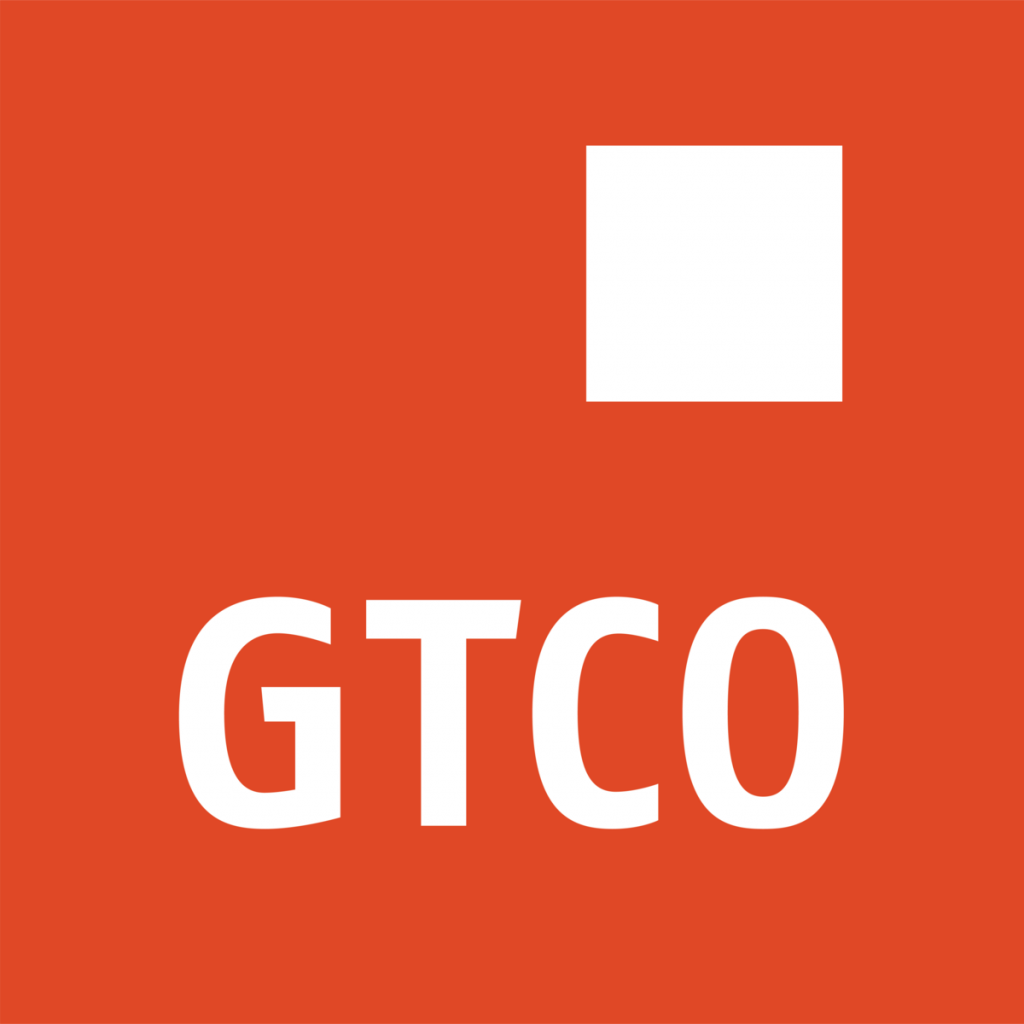
The Group posted profit before tax of ₦900.8billion on the back of strong performance on the core earnings lines of interest income and fee income which grew y-o-y by 25.6% and 16.8% respectively. The strong core-earning performance continued to narrow the y-o-y dip in PBT to 26%, thereby cushioning the impact of the ₦523.2bn fair value gains recognised in Q3-2024, which did not recur in Q3-2025.
The Group recorded growths across all its Asset lines and continues to maintain a well-structured, healthy liquid and diversified balance sheet in all the jurisdictions wherein it operates a Banking franchise, as well as across its Payments, Pension and Funds Management business verticals.
Group’s total assets and shareholders’ funds closed at ₦16.7trillion and ₦3.3trillion, respectively. Capital Adequacy Ratio (CAR) remained very robust and strong, closing at 36.5%, likewise asset quality improved as evidenced by IFRS 9 Stage 3 Loans which closed at 3.3% and 4.4% % at Bank and Group level in Q3-2025 (Bank 3.5%, Group 5.2% in December 2024). Cost of Risk (COR) also improved to 2.2% from 4.9% in December 2024. In specific terms, the Group’s loan book (net) grew by 16.5% from ₦2.79trillion as of December 2024 to ₦3.24trillion in September 2025. Similarly, deposit liabilities grew by 16.0% from ₦10.40trillion to ₦12.06trillion during the same period.
Commenting on the results, the Group Chief Executive Officer of Guaranty Trust Holding Company Plc, Mr. Segun Agbaje, said: “Our third quarter performance underscores the consistency and resilience of our business model, as well as the continued strength of our diversified financial services ecosystem. We are seeing steady, sustainable growth across our banking and non-banking businesses, supported by disciplined execution and a strong focus on operational efficiency. The improvements we have made to our digital and payments infrastructure are enhancing customer experience, deepening engagement, and driving greater integration across our ecosystem.”
He further stated: “Looking ahead, our focus remains on advancing our competitive edge through innovation, operational excellence, and a commitment to superior customer outcomes. With a clear growth trajectory and strong organizational alignment, we are well-positioned to sustain performance momentum and deliver another year of industry-leading results.”
Overall, the Group continues to post one of the best metrics in the Nigerian Financial Services Industry in terms of key financial ratios i.e., Pre-Tax Return on Equity (ROAE) of 39.5%, Pre-Tax Return on Assets (ROAA) of 7.6%, Capital Adequacy Ratio (CAR) of 36.5% and Cost to Income ratio of 28.8%.
Guaranty Trust Holding Company Plc is a leading financial services group with operations across Africa and the United Kingdom. Renowned for its strong corporate governance, innovative financial solutions, and customer-centric approach, GTCO Plc provides a wide range of banking and non-banking services including payments, funds management, and pension fund administration. The Group is committed to delivering long-term value to stakeholders while driving growth and development across its markets
brand
Access Holdings Reports 2.5 Trillion Gross Earnings in H1 2025
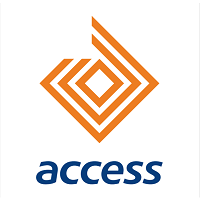
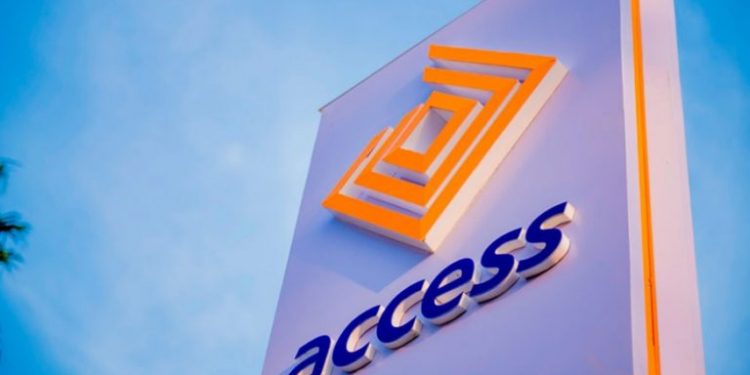
Access Holdings Plc (“the Group” or “the Company”) today announced its half-year audited financial results for the period ended June 30, 2025.The Group’s financial results for the half year ended June 30, 2025, reflect the resilience of our business model, the diversification of our revenue streams, and the steady progress to the execution of our five-year strategic plan. Gross earnings increased by 13.8% year-on-year to 2.5 trillion in H1 2025 from 2.2₦ ₦ trillion in H1 2024, driven by strong growth in interest income which increased by 38.9% year-on-year to 2.0 trillion from 1.5 billion in H1 2024. Net interest income also increased by 91.8% year-on-year to 984.6 billion in H1 2025 from 513.4 billion in H1 2024. Complementing this performance was a growth in net fees and commission income, which increased by 16.1% year-on-year to 237.7billion in H1 2025 from 204.7 billion in H1 2024. Profit before tax (PBT) and profit after tax (PAT) closed at 320.6 billion and 215.9 billion respectively underscoring the strength and resilience of our business model in the markets we operate in. Key balance sheet indicators remain strong with total assets, customer deposits, loans and advances, and shareholders’ equity closing at 42.4 trillion, 22.9 trillion, 13.2 trillion 3.8 trillion respectively. The Banking group demonstrated resilient performance in H1 2025. Interest income grew by 38.7% year-on-year to 2.0 trillion in H1 2025 from 1.5 trillion in H1 2024. Net interest income increased by 85%, from 536.7 billion in H1 2024 to 992.7 billion in H1 2025. Fee and commission income increased by 27% to 294.9 in H1 2025 from 232.5 billion in H1 2024 driven by increased transaction volumes. Profit before tax (PBT) and profit after tax (PAT) closed at 303.0 billion and 199.3 billion respectively. Banking group subsidiaries contributed 65% to the Banking group’s profit before tax (PBT) in H1 2025. This result highlights our journey towards sustainable performance and execution across our key African and international markets. The Group’s non-banking subsidiaries maintained a strong growth momentum. For Access – ARM Pensions, financial performance was robust, with revenue up 29.9% to 21.0 billion and profit before tax up 65.1% to 13.1 billion. The business delivered a₦ ₦
www.accessbankplc.com solid ROAE of 48.1%, a cost-to-income ratio of 35.1%, and a PBT margin of 62.5%, underscoring strong operational efficiency and profitability. Hydrogen Payments recorded a 40.5% growth in top-line revenue compared to H1 2024. Profit before tax (PBT) grew by 273% year-on-year. The total transaction value processed increased by 211%, reaching 41.1 trillion in H1 2025, up from 13.8 trillion in H1 2024. Access Insurance Brokers has sustained strong momentum, recording a 125% year-on-year increase in gross written premium, 146% growth in revenue, and a 161% improvement in profit before tax (PBT). Oxygen X, the Group’s digital lending arm, has sustained strong momentum since launch in Q3 2024, delivering 5.4 billion in revenue and 2.2 billion in profit before tax in H1 2025. Access Holdings’ businesses are well-positioned to deepen market penetration, expand product offerings, and leverage cross-sell opportunities across the Group to drive continued growth and profitability. The group’s focus remains on driving prudent growth and continued execution of its strategic priorities, scaling its digital and transaction-led income streams, increasing revenue diversification, embedding efficiency, innovation, and disciplined portfolio management across all areas of the business. It will also continue to uphold the highest standards of risk and governance discipline to ensure sustainable profitability.Access Holdings remains confident that it will continue to deliver sustainable value and returns to its shareholders. Its long-term objective is to build a stronger, more agile Group that consistently delivers superior returns, fosters innovation-driven growth, and optimises portfolio performance to create inclusive value across its markets while reaffirming investor confidence in the strength and future of Access Holdings. The Group appreciates the continued trust and support of its shareholders, customers, and employees. Together, the Group is building a stronger future.
-

 news5 years ago
news5 years agoUPDATE: #ENDSARS: CCTV footage of Lekki shootings intact – Says Sanwo – Olu
-

 lifestyle5 years ago
lifestyle5 years agoFormer Miss World: Mixed reactions trail Agbani Darego’s looks
-

 health5 years ago
health5 years agoChairman Agege LG, Ganiyu Egunjobi Receives Covid-19 Vaccines
-

 lifestyle4 years ago
lifestyle4 years agoObateru: Celebrating a Quintessential PR Man at 60
-

 health5 years ago
health5 years agoUPDATE : Nigeria Records 790 new cases of COVID-19
-

 health5 years ago
health5 years agoBREAKING: Nigeria confirms 663 new cases of COVID-19
-

 entertainment9 months ago
entertainment9 months agoAshny Set for Valentine Special and new Album ‘ Femme Fatale’
-

 news5 months ago
news5 months agoBREAKING: Tinubu swears in new NNPCL Board


